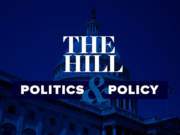Last week’s announcement by the IRS that it would no longer require most nonprofit organizations to provide the agency with the names and addresses of their donors is remarkable for two reasons: First, for the rare sight of the IRS voluntarily giving up some power and, second, for the reaction of the progressive Left and left-wing media.
The decision to stop gathering some donor information seems, on the surface, like a no-brainer. First, the IRS neither used nor needed the information in its everyday operations. Because the new rule applies to nonprofit groups that do not get tax-deductible donations, including trade associations, issue groups such as the National Rifle Association and Greenpeace, and organizations such as volunteer fire departments, the information is not necessary to verify that taxpayers made tax-deductible contributions. (The IRS will still be able to demand donor information when necessary, such as for audits or criminal investigations).
Second, though the information is supposed to be kept confidential, this has not always been the case. For example, in 2014 the IRS was forced to pay damages to the National Organization for Marriage, which supports traditional marriage, after an employee, whose specific identity was never publicly uncovered, leaked information on NOM’s donors to an LGBT rights organization. There is simply no need for the IRS to maintain donor information that might be accidentally released, leaked by a rogue employee, or used by unscrupulous politicians to harass political opponents.
Third, some states, notably California and New York, have demanded that nonprofit groups file their IRS forms with their state governments. Although they, too, promised to keep donor information private, in real life it didn’t always work. For example, a federal court found that California placed donor information for thousands of nonprofit groups online. The judge described the state’s disclosures of confidential donor information as a “pervasive, recurring pattern.”
Finally, we might ask why, absent a very good reason, the federal government should ever be collecting data on our memberships and donations in the first place. What business of the government is it if you belong to a fishing club or the National Association of Realtors, or want to support Everytown for Gun Safety or the NRA?
Nonetheless, government agencies can be remarkably unwilling to surrender power or information. So praise is in order for Treasury Secretary Steven Mnuchin and acting IRS Commissioner David Kautter for doing away with the requirement.
Even more interesting, however, is the response of the progressive Left and the press. Because some of the organizations now exempt from filing donor information speak out about issues, or make some political expenditures (legally limited by tax law), this modest regulatory rescission is being portrayed as a victory for “ dark money” in politics. Now, the Institute for Free Speech has pointed out repeatedly that “dark money” is the political bogeyman of our times — it amounts to a tiny percentage of political spending in the U.S., and attempts to completely end it intrude on the freedom of law-abiding people without providing any useful information to the public.
But let’s assume, for argument’s sake, that stopping “dark money” is an important goal. Here’s the thing: The information the IRS had been collecting was required by law to be kept private! So not reporting the information to the IRS has no legal effect at all on “dark money.” Think about that.
In short, what the progressive and media criticism of the IRS’s decision boils down to is some combination of the following:
They want to whip up hysteria about “dark money,” even when it is irrelevant to the policy at issue.
They want the IRS to illegally leak the data collected.
They hope that a database of donor memberships might be used by a future progressive administration for some unspecified purpose.
They simply don’t want to give up any potential power over Americans and perhaps hope, if the government is already collecting this information, it will be easier to pass more laws intruding on privacy in the future.
All of which sound like pretty good reasons to thank the IRS — yes, let’s thank the IRS — for taking this small step to protect privacy.
This post originally ran in the Washington Examiner on July 23rd 2018.














